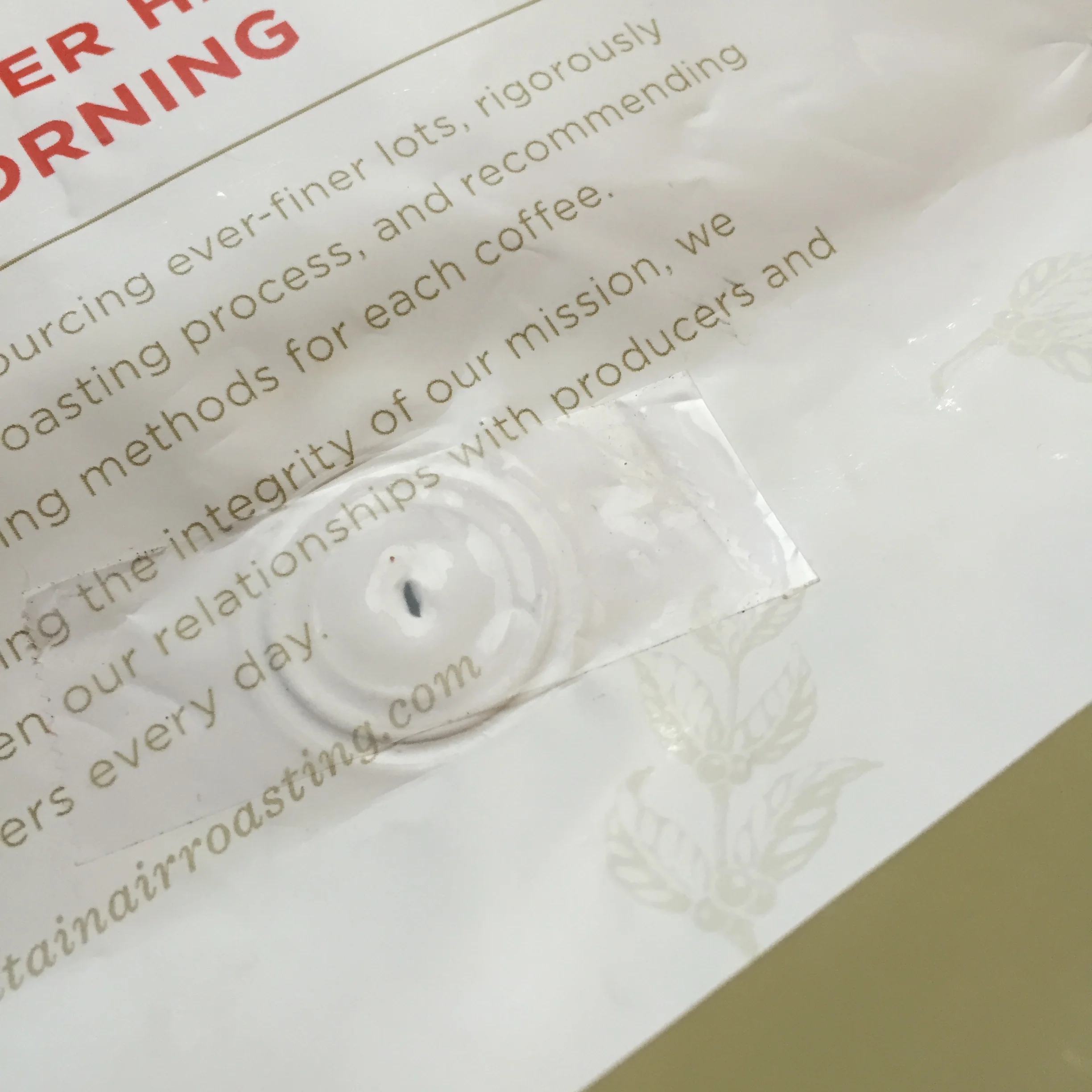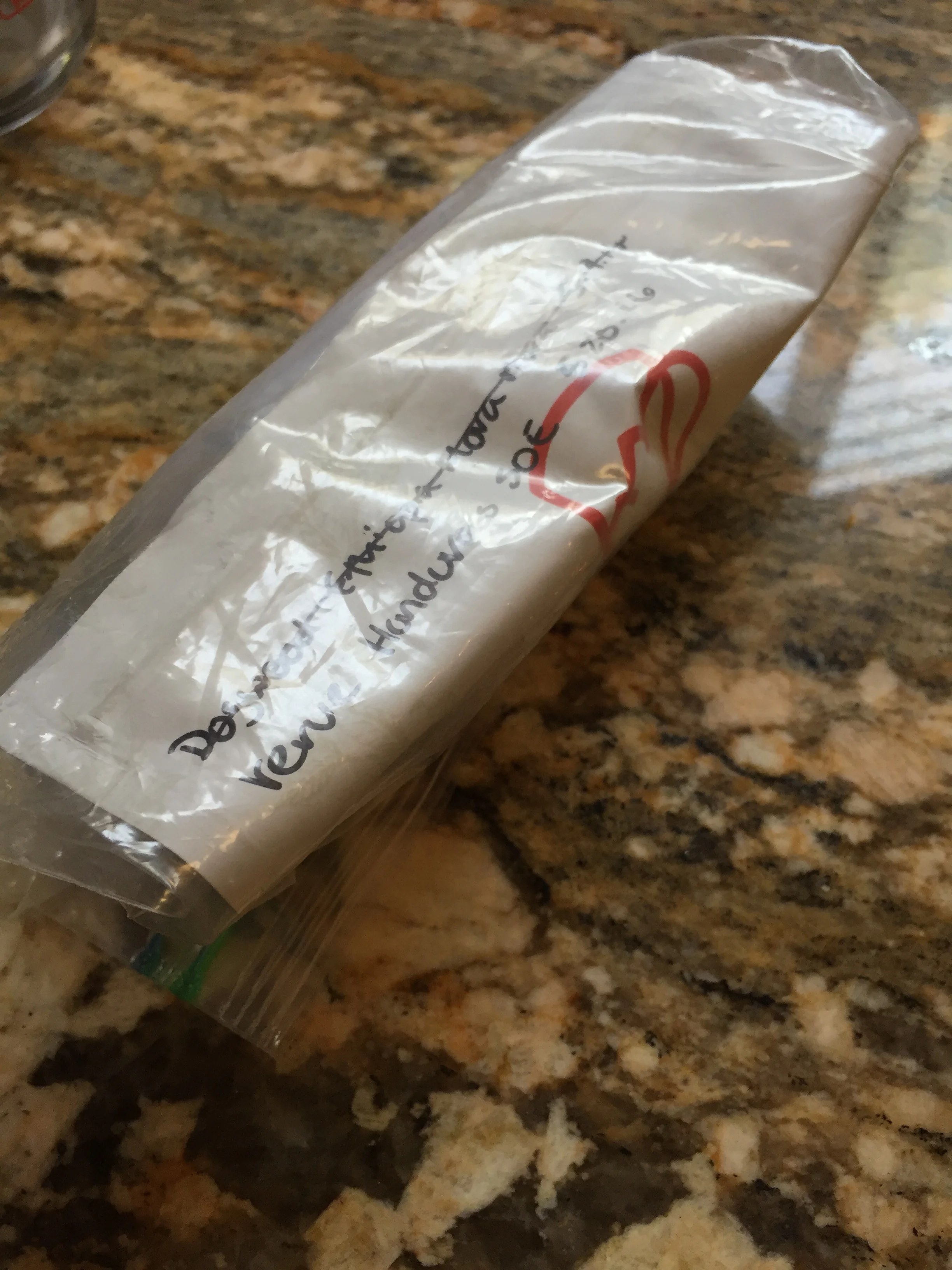The right way to freeze and more importantly, thaw coffee
Freezing coffee generally causes gasps within the specialty coffee world, but there is a right way to do it. Freezing is not 100% optimal, and fresh coffee will always be better, but when done right, the taste or quality is not really sacrificed and offers a lot of advantages. I generally order 4 or more coffees from a roaster at a time. Sometimes I do this because it gets me to a price threshold to qualify for free shipping, maybe the roaster is running a promo, or they just have a lot of really good coffee I'd like to try. On the home front, it's advantageous because you can manage how much coffee you have so you're always stocked up, be able to switch back and forth between coffees pretty readily, and take advantage of possible shipping discounts. It's actually pretty simple, but each step is important.
The bags from Mountain Air make for great reusable storage with zip lock tops and one way valves.
First: Upon receiving coffee I divide and split the coffee into 2-4 day's portions. Freezing coffee doesn't keep the coffee from aging all together but does slow the staling process significantly. Once you do go to use the coffee though, it actually stales faster than if it hadn't been frozen. If you have a deep, very cold, temperature stable chest freezer, you can push the amount of time coffee will stay good in the freezer, but if it's just going in your refrigerator's freezer, try to store it in the coldest part of the freezer and use it within 2-3 months. For me, 2-4 day's worth of coffee breaks down to splitting a bag of coffee into 2 or 3 separate bags or containers. I re-use quality, zip-lock style bags with a one way valve that I've received from previous orders. My personal favorite are those from Mountain Air Roasting. Since it's to your advantage to order 4 or more bags from them to receive a price break, their bags are really nice, and they're easy to write on, they're my go to. I typically write the roaster, the coffee, and the roast date, just for easy reference. The most important part of this step is to get as much air out of the bag as possible. Once you do that, place a piece of scotch tape over the one way valve so it doesn't get stuck in the open position. Some people like to use vacuum seal or canning jars, filling them up as full as possible to not leave any room for air; it's also a good solution, I just use the bags because I have them. The last thing I do then place this bag in another large foil, zipped coffee bag or zip-lock freezer bag just to be sure. I don't know how much difference double bagging makes, but I figure it can't hurt to provide an extra barrier.
Second: I place the bags in the deepest, coldest part of my freezer. For me, this is in the back, underneath some frozen vegetables and such, trying to place the labeled side out for quick grabbing. When do you need to get another bag out of the freezer, the next step is the single most important.
Third: This is the most important part: After removing the coffee from the freezer: do not open the bag until it has had sufficient time (multiple hours) to come up to room temperature. By not opening the bag before it has full acclimated, you take away the potential for the air to condense and get moisture on the coffee. I get in the habit or set a reminder on my phone to take coffee out of the freezer the night before I'm going to need it, not opening the bag until the next morning, when it has fully stabilized.
And that's pretty much it. There are a few additional considerations worth noting though.
- The coffee cannot be refrozen. And this is for whole bean coffee only.
- Also, when the coffee is not in the freezer, it should be kept in a kitchen cabinet or somewhere out of direct sunlight.
- The coffee will stale faster if it has been previously frozen. This is one of the reasons I break down the coffee into small portions. The other, is that I like the flexibility to switch between various coffees every few days if I feel like it.
- Because the coffee may stale quicker, a slightly higher dose and/or finer grind may be required to achieve the same results. This is usually only true if the coffee has been in the freezer for an extended period, the freezer isn't getting that cold, or the coffee is really sensitive.
- If the coffee you receive is really fresh, you might consider waiting until 5 or 7 days post-roast before freezing. If you think the coffee will sit in the freezer for a long time, I wouldn't wait, but if you're going to use it fairly soon, it is possible or the coffee to still be too fresh when you pull it out, and it will do better if it's allowed to degas some before freezing.
With these steps, there's really no reason to not have quality coffee at home. Mail ordering coffee can someteimes be less expensive than buying locally (depending on where you live, obviously) and allow you access to try great coffees from all over the country or world. Nearly all roasters offer mail ordering or subscription services, and it's always a good idea to keep an eye on their social media accounts for promotions throughout the year. I hope this helps make good quality coffee more accessible, and as always, if you have any questions, feel free to contact me.

